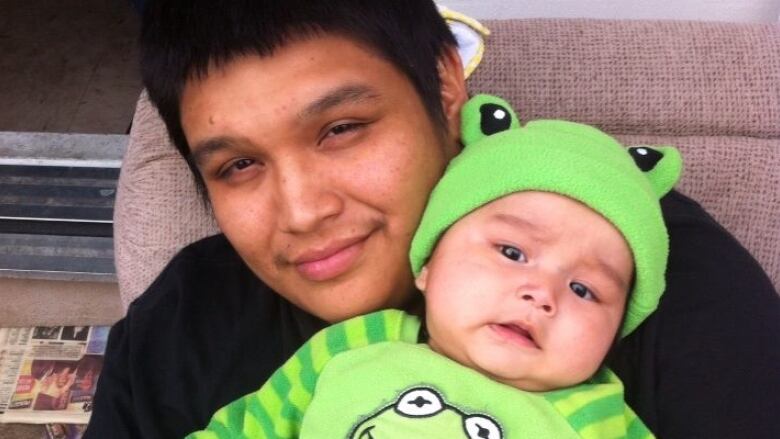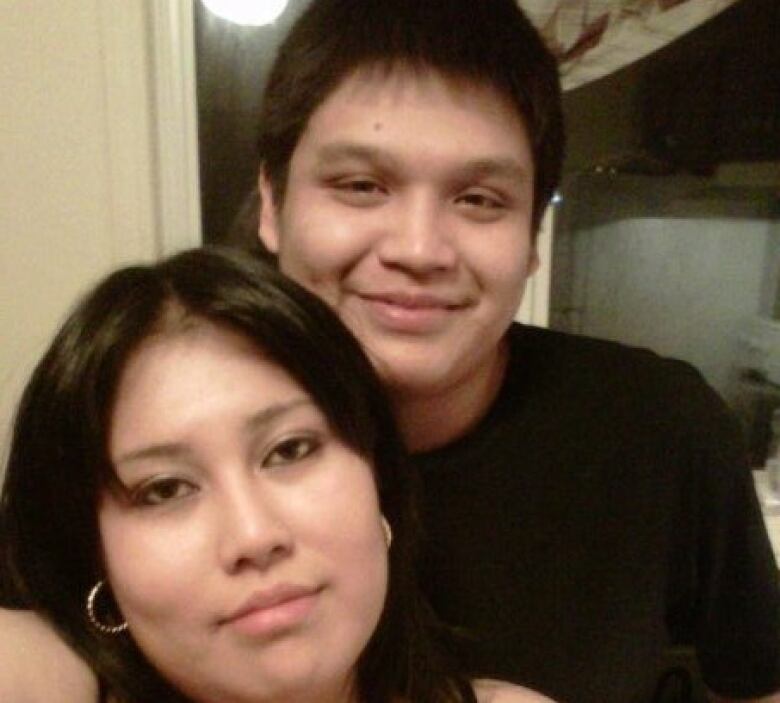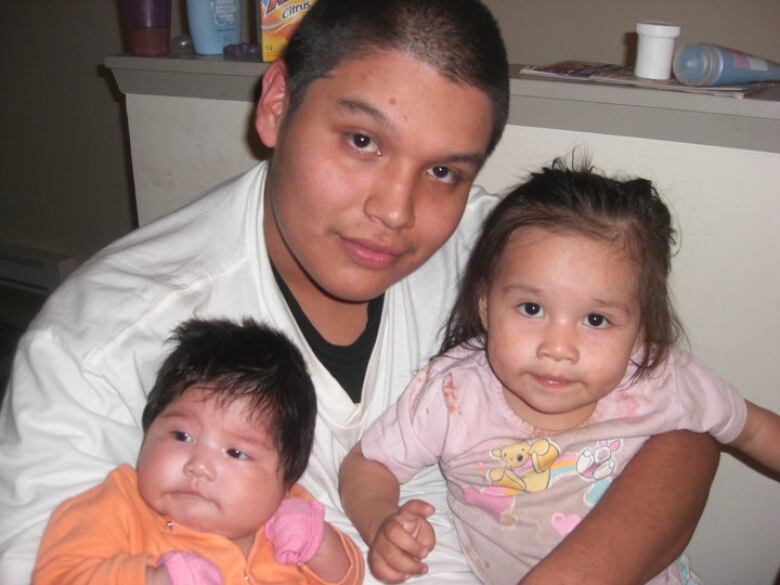Widow testifies at inquest into Errol Greene death: 'I wanted to kiss him goodbye'
Rochelle Pranteau is 1st person to testify at the inquest into Winnipeg Remand Centre inmate's death

Wearing a red hoodiewith a picture of her late common-law husband on it, Rochelle Pranteau was the first to testify in the inquest into the death of Errol Greene.
Greene died on May 1, 2016, after having two seizures in the Winnipeg Remand Centre. He was arrested for drinking alcohol, which breached conditions of his bail for a mischief charge from March.
"He was nervous and scared about what happened in March," Pranteau said Greene told her from the remand centre when they spoke on the phone on Saturday, April 30.
Greene had a seizure while being discharged from the Winnipeg Remand Centre in March and had to be taken to Health Sciences Centre for treatment, Pranteautestified.
"I asked if he requested his medication and he said yes," she said.
Pranteautalked to Greene twice on theSaturdayand then onceon Sunday. When they spokeSundayat1:30 p.m., he still had not seen a nurse or gotten his epilepsy medication, she testified.
He had to take the medication three times a day, five tablets total, she said.He didn't like taking pills and sometimes forgot, but both she and their then six-year-old daughter always reminded him, she said.
In the two years before his death, Greene had a minimum of two seizures a year, which are the ones she was present for, she said.

He always knew when a seizure was about to happen, she said, because he would feel lightheaded, his jaw would lock, he would grind his teeth, and his fingers would go numb.
"He started telling me he was getting a numbing feeling in his fingertips," on the Sunday, she said. "I was trying to tell him to get up and tell the guard to be ready."
She heard a thud and knew he had collapsed, she said. She could hear him jerking and screaming because the phone was still connected.
"I could hear one of the inmates saying, 'He's having a seizure. Put him on his side. Watch his head,'" she said.
Pranteauheard corrections officers and the voice of a woman she assumed was a nurse.
"I was pushing buttons, screaming, hoping to catch someone's attention," she said.
I wanted to kiss him goodbye. I wanted to touch him.- Rochelle Pranteau
Eventually the phone was hung up during the commotion. She didn't try to call the remand centre because she didn't think they would release any information to her, she testified.
"I was thinking the worst," she said.
Later that evening, someone from the remand centre called to tell her Greene died at the hospital. No one from the hospital had called her, she said.
She went to the hospital looking for answers and Greene's name wasn't in the system, she testified. It took a nurse an hour to find out where he was, she said.
When she finally saw him, she wasn't allowed to touch him, she said.
"I wanted to kiss him goodbye. I wanted to touch him," she said.
Pranteau had to request a copy of the autopsy report and no one from corrections ever followed up with her to offer her any counselling services, court was told.

The inquest will hear from corrections officers, nurses at the remand centre, police officers, paramedics and remand officials.
The pathologist who conducted the autopsy is second on the list testify.
The inquest is expected to last 15 days.













_(720p).jpg)


 OFFICIAL HD MUSIC VIDEO.jpg)
.jpg)



























































































